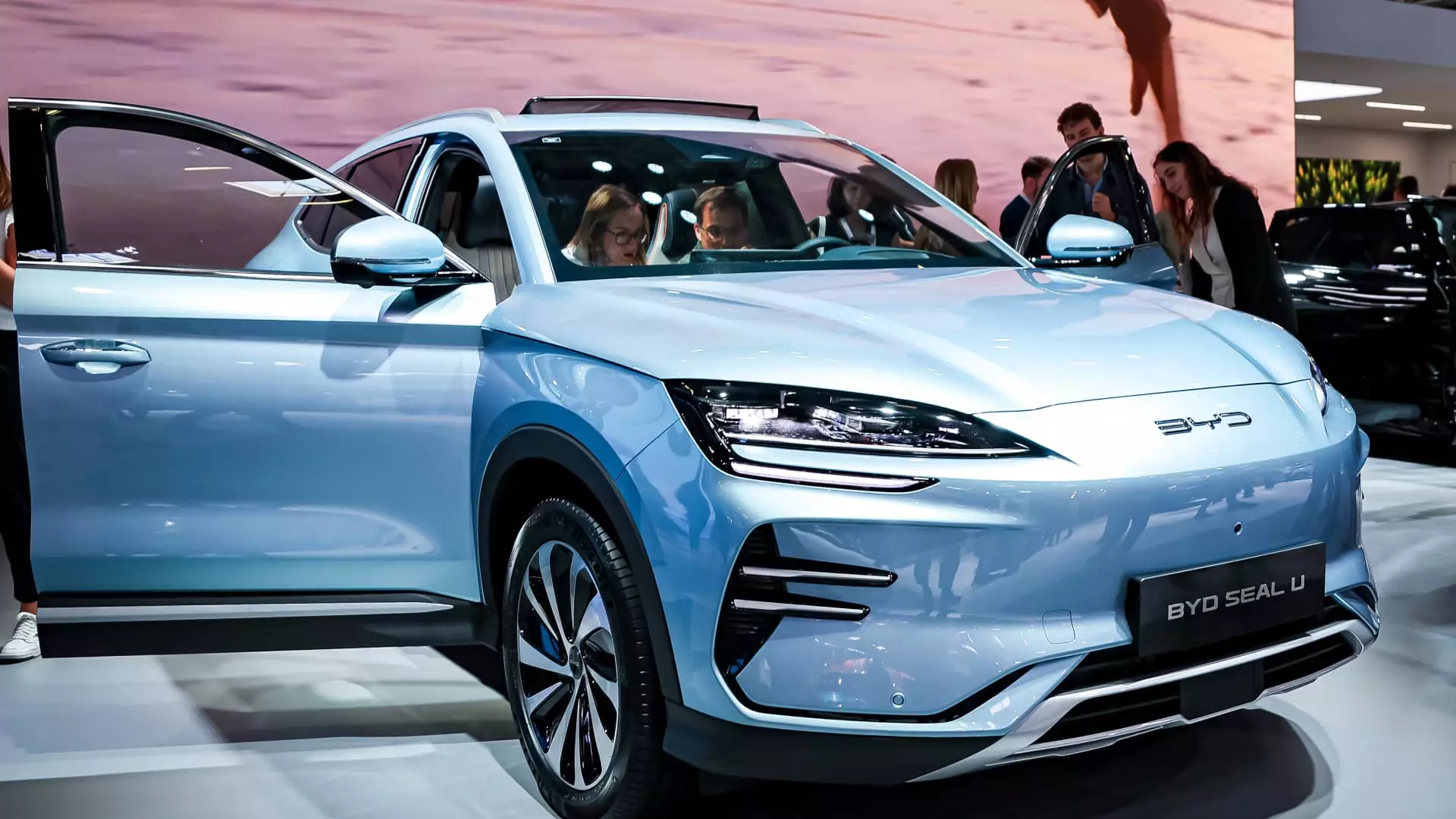The Chinese electric vehicle manufacturer BYD is making waves in the industry, with projections showing that it is on track to overtake Tesla in battery electric vehicle sales this year. According to a recent report by Counterpoint Research, BYD’s BEV market share is expected to surge, highlighting the dynamic nature of the global EV market. In the second quarter of this year, BYD’s battery EV sales jumped by nearly 21% year on year to 426,039 units, while Tesla’s deliveries fell by 4.8% to 443,956 vehicles during the same period.
In the previous year, BYD’s total production, including battery-only powered cars and hybrids, exceeded 3 million units, surpassing Tesla’s production of 1.84 million cars for the second consecutive year. Despite this achievement, Tesla still leads in terms of BEV production, with BYD manufacturing 1.6 million battery-only passenger cars and 1.4 million hybrids. The competition between the two companies is fierce, with BYD losing the top EV vendor spot to Tesla in the first quarter of this year.
Counterpoint Research emphasized that China remains a dominant force in the BEV market, with BYD leading the way. The report predicts that China’s BEV sales will be four times greater than North America’s in 2024, underscoring the country’s significant presence in the electric vehicle industry. Additionally, China is projected to hold more than 50% market share of global BEV sales until 2027, with Chinese BEV sales expected to surpass the combined sales of North America and Europe by 2030.
In response to the increasing dominance of Chinese EV manufacturers, the European Union announced additional tariffs on Chinese EV firms to protect the interests of the EU industry. BYD, along with other Chinese automakers such as Geely and SAIC, will face additional duties ranging from 17.4% to 38.1%, on top of the standard 10% duty already imposed on imported EVs. The aim of these tariffs is to level the playing field for European EV manufacturers and address the competition posed by lower-priced Chinese imports.
Counterpoint Research’s associate director Liz Lee noted that the EU’s new tariff rates for Chinese EVs could potentially push Chinese automakers towards emerging markets in regions like the Middle East, Africa, Latin America, Southeast Asia, Australia, and New Zealand. Despite the challenges posed by tariffs, the growth of the electric vehicle market will be supported by efforts to improve cost-efficiency and affordability for EVs and EV batteries.
BYD’s rise in the electric vehicle market signals a shifting landscape in the industry, with China playing a pivotal role in driving global BEV sales. As competition intensifies and new challenges emerge, it will be interesting to see how BYD and other key players navigate the ever-evolving market dynamics to secure their positions in the future of transportation.


Leave a Reply